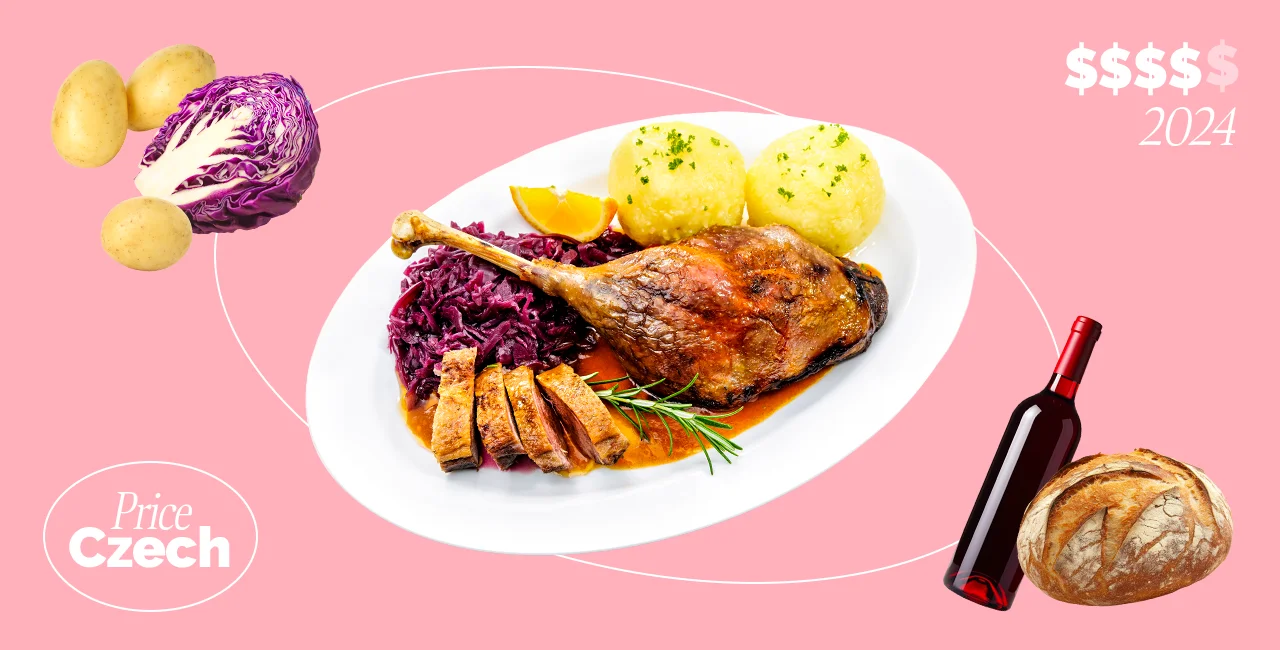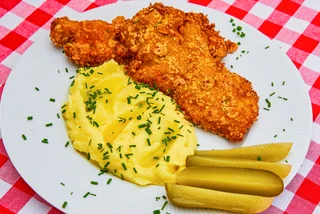As October wraps up, hearty, meat- and vegetable-filled dinners are coming up in November—namely, St. Martin's Feast (on Nov. 11) and the U.S. feast of Thanksgiving (Thursday, Nov. 28), which many American expats in Czechia will celebrate.
However, with the cost of living seemingly getting ever higher in Czechia, will you need to pay more for your large November meals this year? And are basic foodstuffs—meat, potatoes, flour—more expensive than in the past?
Unfortunately, many key foodstuffs have jumped in price—but it's not all bad news. Here is what you can expect to pay next month for the celebratory meals.
More for meat
According to the Czech-Moravian Poultry Union (CDU), a kilogram of domestic chilled goose—a staple of St. Martin’s Feast— will start at CZK 250 this year. In 2021, a kilogram cost as low as CZK 200.
"Despite the 17 percent year-on-year drop in the prices of feed mixtures, goose prices will probably be about 5 to 10 percent more expensive due to high demands on manual labor and higher prices of breeding material," CDU chairman Gabriela Dlouhá told the Czech News Agency.
your november feast shopping basket
- Whole goose - CZK 1,100
- Whole turkey - CZK 984
- Albert plain wheat flour (1kg) - CZK 14.9
- Albert wheat-rye bread (1kg) - CZK 49.3
- Stella original butter (block; 250g) - CZK 38.9
- White cabbage (whole head; 1kg) - CZK 34.9
- St. Martin's wine (2024, bottle) - CZK 109
Sources: Specific goose and turkey vendors, Albert products
Dlouhá also explains that a shortage of geese in Czechia and excess demand has led to the high prices—leading to increased imports pushing up prices.
Turkey—served up for Thanksgiving and also Christmas (just two months away)—is also more expensive. According to the State Agricultural Intervention Fund (SZIF), year on year, the price of chilled turkeys increased by CZK 2.35 per kilogram; about 3 percent.
Ingredients and sides: A mixed bag
Basic items needed while cooking your November feasts will vary in price, though are—thankfully—broadly cheaper compared to this time last year.
The good news is that flour is cheaper—an interactive chart from the Czech Statistical Office shows that 1 kilogram of plain wheat flour has decreased from CZK 17.6 to CZK 15.5 year on year this month.
Bread goes with anything—especially with St. Martin's Feast and Thanksgiving. Thankfully the price has remained constant; about CZK 2 cheaper than last year. A kilogram of table potatoes is also cheaper—declining from CZK 21 to around CZK 17 this September.
The same is unfortunately not the case for butter—this food item has surged by a mammoth 43 percent, data from September 2024 shows.
Cabbage and other veggies on the up
Cabbage is a core component of St. Martin’s Day meals, and the fact that this year’s cabbage harvest was hit hard by frosty spring weather and drought has edged up prices.
Shredded cabbage is now sold for about CZK 31, and whole cabbage heads for CZK 21. Last year, shredded cabbage was CZK 24, and whole heads were around CZK 16 to CZK 19, Czech media outlet TV Nova reports.
Vegetables as a whole are going up, rising in price by about 3 percent year on year.
Red wine
This staple goes well with any meal, but is especially popular on St. Martin’s Day for Czechs. The SZIF writes that the price of a wholesale, unbranded liter of red wine now costs about CZK 36 on average—in March 2023 this stood at CZK 29.
A classic bottle of St. Martin’s wine (svatomartinské víno), regulated by the Wine Fund of the Czech Republic, starts from just over CZK 100—very similar to last year, which will come as welcome news for wine fans.
In Czechia, St. Martin's Day marks the arrival of winter and is traditionally celebrated with feasts featuring roast goose and red wine, known as "Svatomartinské víno." The day is also linked to the legend that St. Martin arrives on a white horse, symbolizing the first snowfall of the season.












 Reading time: 3 minutes
Reading time: 3 minutes 




























